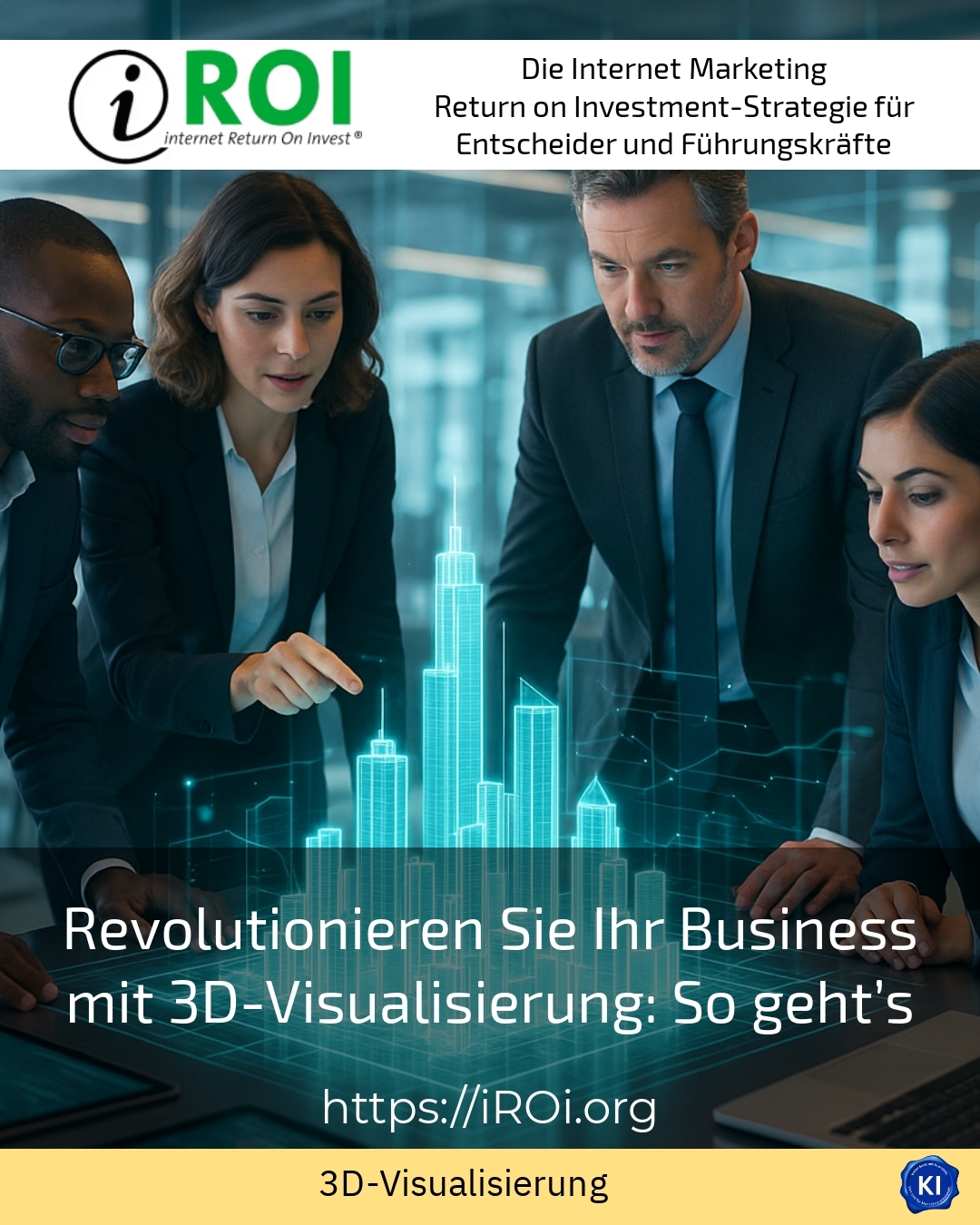Modern 3D visualisation opens up a wide range of opportunities for companies to present products, processes and ideas vividly and vividly. This technology allows complex content to be presented and designed in an innovative way. More and more industries are integrating 3D visualisation into their processes in order to effectively inspire customers, partners and employees and manage projects more efficiently.
Why 3D visualisation plays an important role in your business
3D visualisation helps companies to make products and services that require explanation understandable. Particularly in sectors such as mechanical engineering, architecture or medical technology, it facilitates the visualisation of internal mechanisms and technical processes. This gives the customer or user a direct insight without having to rely on physical prototypes.
The flexibility in customising models also offers clear advantages: Changes can be made to the digital model quickly and cost-effectively. Especially in the product development phase*, such representations help to introduce optimisations at an early stage and avoid potential errors.
Practical applications of 3D visualisation in various industries
In the furniture industry, virtual showrooms allow customers to experience and configure pieces of furniture from home. They can view different colour and material variants directly and thus gain inspiration for their individual furnishings.
In the automotive sector, 3D visualisations are used for virtual test drives and vehicle configurations. Customers can view and test drive their favourite model in real time without having to visit a branch. This saves time and offers an immersive experience.
Buildings and interiors can also be experienced in the construction industry through 3D visualisation. This allows architects, clients and interested parties to view new buildings or renovation projects virtually before completion and compare variants. This increases planning reliability and reduces the number of expensive change requests during realisation.
BEST PRACTICE with one customer (name hidden due to NDA contract) A manufacturing company in the industrial machinery sector uses 3D visualisation to present the complex functions of its systems at trade fairs. Visitors can interactively take apart individual components virtually and understand the manufacturing process. This digital presentation supports the sales staff in explaining complex technical details in a clear way.
3D visualisation as a tool for marketing and sales
High-quality renderings and animations create realistic product visualisations that have an emotional impact and build trust. Companies often report that the use of 3D visualisation makes sales talks more lively and convincing. This is particularly true in situations where products are not yet physically available, for example in the case of new developments or investor presentations.
Digital product configurators allow customers to customise products according to their own wishes. This interactivity strengthens customer loyalty and provides valuable impetus for creative sales approaches. 3D applications also reduce the need for physical samples, which saves resources and cuts costs.
BEST PRACTICE with one customer (name hidden due to NDA contract) A manufacturer of household appliances used an interactive 3D visualisation for a new mixer. Prospective customers were able to try out different colours and accessory options via a web platform. The result was a measurably higher completion rate and better user satisfaction in online sales.
Use of 3D visualisation in education and training
Training courses benefit from realistic simulations that convey safety in dealing with complex machines or processes. For example, employees can complete training courses without blocking expensive systems or creating risks.
In technical companies, 3D visualisation makes it easier to understand product specifications and assembly processes. New team members are also integrated more quickly as they learn directly from the virtual object.
BEST PRACTICE with one customer (name hidden due to NDA contract) A logistics company uses 3D models to train material flow and layout in warehouses. Employees report better orientation and higher motivation thanks to the clear training on the computer.
My analysis
3D visualisation is a valuable tool for modern companies that want to intensify their communication and customer loyalty. It opens up new perspectives in marketing, product development and employee training. By visualising complex content, it supports decision-making processes and increases efficiency in project planning.
With the right support, such as iROI coaching, you can optimally exploit the potential of 3D visualisation. Our expertise helps you to successfully implement projects and integrate digital innovations into your business in a meaningful way. We will be happy to accompany you on your next step into the digital future.
Further links from the text above:
3D product visualisation - examples, costs & advantages
AR & VR in business: more than just hype
3D visualisation - you should take advantage of these opportunities
3D visualisation and 3D applications in marketing
For more information and if you have any questions, please contact Contact us or read more blog posts on the topic internet Return on Investment - Marketing here.
















